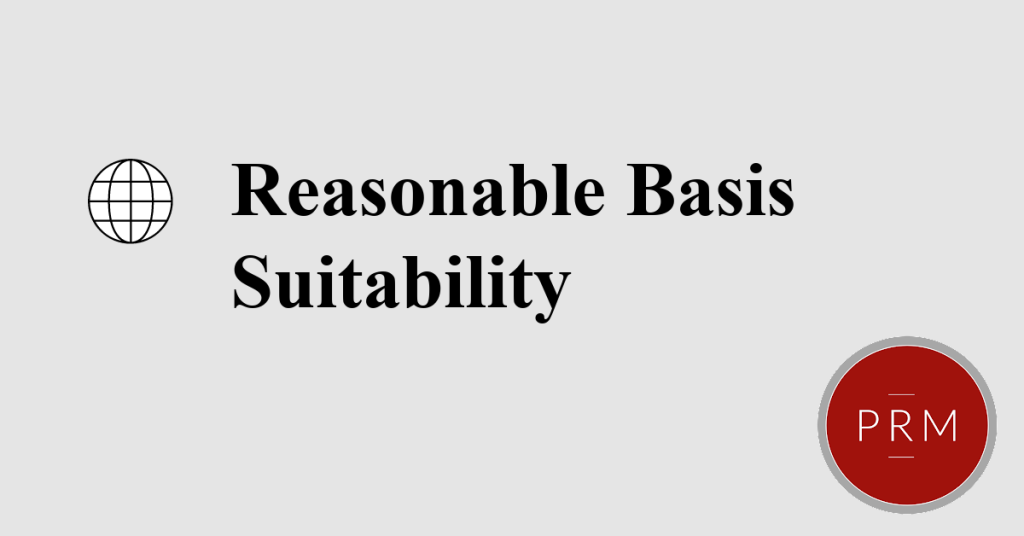Investment Suitability
Overview
Investment suitability refers to a brokerage firm’s obligation to ensure the investment the recommend are suitable for their investors. Unsuitability occurs when an investment falls out of line with an investor’s investment objectives, risk tolerance, and/or goals.
FINRA arbitration rules require broker-dealers to have a “reasonable basis” to believe that the investment recommendations they make are suitable for an investor.
Unsuitability means Recommending an Investment Riskier than what the Investor is Willing to Tolerate
Consider the following basic example of unsuitability:
An elderly investor has a conservative investment objective and risk tolerance. The investor’s account forms with the brokerage firm indicate that she desires an investment allocation that does not expose her to significant risk. Nevertheless, a broker invests the investor’s funds in predominantly high-risk equities. The equities lose value and the investor loses money.
The high-risk equities were “unsuitable” because the investor did not want substantial risk exposure.
FINRA Rules Provide 3 “Suitability Standards” that Brokerage Firms use to Assess Suitability
FINRA defines three suitability standards that brokerage firms must consider to determine suitability of an investment. These standards are applied in steps described below.
Step 1

The broker-dealer must have a reasonable basis to believe that the investment is suitable for someone.
Reasonable basis suitability refers to the broker-dealer’s top-level assessment of a particular investment. Broker-dealers typically offer many investments to customers—ranging from conservative to risky. Broker-dealers must assess each of these investments to make sure that it is suitable for someone.
If an investment is unsuitable for everyone, the broker-dealer cannot meet the reasonable basis suitability standard. On the other hand, if the firm determines the investment is suitable for someone it can proceed to the next step.
Step 2

Broker-dealers must work to ensure the investment is suitable for the specific investor, given several, investor-specific factors.
These investor-specific factors include, among others:
- The investor’s risk tolerance.
- The investors investment objective.
- The investor’s time horizon.
- Any other factors that might impact a client’s investment decisions.
If the brokerage firm determines that the investment is suitable for the specific investor, it can move to step three.
Step 3

Quantitative Suitability refers to the suitability assessment of an investment while also considering the investment strategy as a whole.
Investors can best understand quantitative suitability through examples.
Example 1- Quantitative Suitability Issues Stemming from Churning or Excessive Trading.
Excessive trading and churning refer to the practice of placing trades to generate commissions; compared to placing trades for the investor’s benefit. The individual trades might suitable when viewed in isolation. But the trades are unsuitable when viewed collectively because the broker placed them solely to generate commissions.
Example 2-Quantitative Suitability Issues Stemming from Improper Asset Allocation.
Asset allocation refers to the distribution of an investor’s capital across different asset classes.
Suppose the investor is 5 years away from retirement. Therefore, he wants a low-risk portfolio heavily weighted in low-risk investments. With the help of the financial advisor, the investor agrees to a recommended investment portfolio to with 75% traditionally conservative investments (cash and municipal bonds, for example), and 25% in stocks.
Suppose the broker then invests 50% of the investor’s portfolio stocks. The individual stock transactions, when viewed in isolation, might be suitable because the investor agreed that he wanted some stocks. But when the stock trades are viewed collectively, they are unsuitable because the broker overexposed the investor to stock.
*The Law Offices of Patrick R. Mahoney is a full service law firm with extensive experience litigating cases involving a host of securities-related issues. This page is for information purposes only and does not constitute investment or legal advice, nor is it a comprehensive explanation of all unsuitability issues. If you believe you have a claim, you should speak to competent counsel to better understand your options. Or, contact us.*
